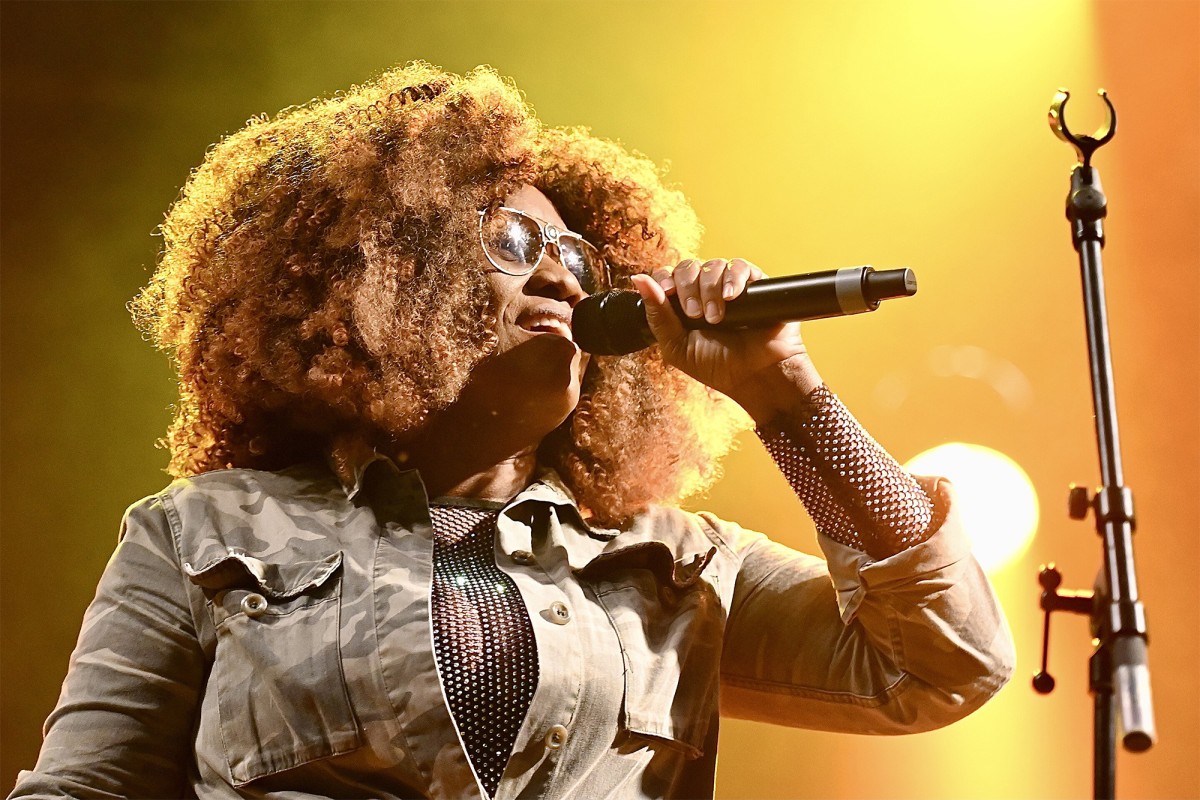Tanya Stephens Says Sexual Violence Influenced How She Dressed For Years

Watching Tanya Stephens perform is quite the audio-visual paradox.
Her signature aesthetic has been a blend of denim and black apparel, boots, sunnies and big hair, keeping it edgy but conservative. Yet, in all her fully clad glory, her songwriting brilliance will have anyone believing that she is, indeed, a head top-whining, husband-stealing, ninja bike-riding rebel. On her 2004 track Way Back , she asserts that a woman’s talent shouldn’t be determined by the length of her skirt. But as she tells it, her brand image wasn’t formed from wanting people to focus on her musical capabilities.
“I wanted to not be judged by my appearance because my product is audio, but I never set out to be fully clothed from a moral standpoint,” Stephens told DancehallMag. “My being fully clothed was a product of having suffered sexual violence – it had nothing to do with music or morals. This is what society teaches you; that when this happens to you, somehow, it’s your fault and perhaps it’s because of how you were dressed.”
The Do You Still Care singer was first raped at 17 by someone in the music industry. Two years later, she was gang-raped at the control of her boyfriend whom she said knew of her prior sexual violation.

“On both occasions when I was attacked, I was fully clothed, yet I still felt the way to protect myself was to be fully clothed, and that’s how that kind of dress came about…” she shared. “Right now, when I’m healing and I no longer see myself as the cause of that particular suffering, I am wearing more comfortable clothes… I shouldn’t say ‘more comfortable’ because I was comfortable then…but ‘comfortable’ – to me – has been redefined and now I dress according to the climate…
“I don’t think we should be judging talent by appearance unless appearance is the talent. So, if it’s a model, then by all means, judge by appearance… But if it’s somebody who is selling themselves by sound, then judge them by sound.”
Her redefinition of “comfortable” has been peeping through in recent times, from her bustier, shorts and mesh coverup ensemble at Sting’s 2023 launch, to her variegated wig hauls with her Instagram family. While she promised a more free-spirited version of her 50-year-old self (per the Fifty collab with Patra), Stephens said it’s her tribe that is largely responsible for her outward liberation.
“I have a lot of people to thank and for this part, I am going to extend an invitation to every one of your readers to explore the thought of getting psychiatric help because we’re all broken, we’re all traumatised,” she said. “We’re experiencing things that we really ought not to… We do ourselves a disservice when we think that we can just keep going without being affected by it. We’re all affected and we need to sit with professionals or semi-professionals or some unneutral party who will impart without any bias and go through the things that we’re feeling. You haffi find somebody fi talk to because you can’t do it alone, and I didn’t do this alone.”
On the subject of therapy, the Be Who We Be artist has not been able to consistently engage in it as she is not comfortable enough to seek professional help locally.
“I tried before and it really, really scared me,” she revealed. “It made me feel like I had no privacy left when he said, ‘I have to go back and listen to the songs with a different ear’. That was a no no; I would send him back to school for that. So, I’ve never been able to get consistent therapy because I have to take my therapy on the run.”
She’s found safe spaces in her friends, including Barbadian Prime Minister Mia Mottley.
“I want to say a big thank you to Dr. Renee Rattray and big up Britt Ohana who is in Florida, and big up Mia Mottley who mek mi bawl pon her shoulder and let out eye water and nose naught. I will never stop being grateful to these people who are my village and who have my back and all the other people around me… We need that and we need to stop pretending we don’t need that. Nobody is that strong. I’m a very strong person but I have my weaknesses and that is what is happening now.
“All of these efforts that were put into me, all of these people who hugged me and squeezed me and let me bawl and be myself and never walk and show everybody the picture of me with the nose naught pon me face, all of these people who allowed me to do this are the reason why mi can now come out in a short-shorts and feel comfortable, and can express myself like this. So, it’s not really turning 50, but getting myself back. It’s like I’ve been given a second chance at just being me and everybody should experience that… Decriminalise mental health so we can all have a better relationship with weself, please.”
